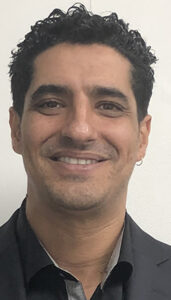By Shahar Masori

SAN DIEGO — In my childhood, the idea of “family” was much simpler—at least on the surface. Growing up in Israel, the family structure felt pretty straightforward. You had your parents, likely married, and your siblings, if you were lucky enough to have them. Dinners were loud, chaotic, and there was no such thing as a family meeting that didn’t involve everyone speaking at once. Family was this unshakable pillar, a unit bound together through tradition, community, and sometimes, a little bit of chutzpah.
But let’s fast-forward to now—2024. Family looks very different, doesn’t it? Whether I look around in Israel or here in the U.S., I see how family dynamics have evolved. And what fascinates me most is how adaptable we are as humans to these changes. The definition of family has expanded far beyond what we grew up with.
I remember when I first moved to San Diego in the early 2000s, I was introduced to family structures that looked nothing like what I was used to. Single parents, blended families, same-sex parents raising children, families built through adoption or surrogacy—it was eye-opening. It made me realize that family, at its core, isn’t about following a set structure. It’s about love, connection, and shared responsibility, regardless of how it’s packaged.
Now, I know many of us still have a soft spot for the “traditional” family unit—two parents, a couple of kids, maybe even a dog. But the world has changed, and the definition of family has beautifully adapted to reflect the diversity of our experiences.
In Israel, the notion of family is also shifting. Yes, you still see the strong ties to tradition—Shabbat dinners, big family gatherings—but now, there are families led by single mothers by choice, or same-sex couples, and the concept of community takes on a broader, more inclusive meaning.
I can’t help but think about how these changes in family dynamics affect our kids. When I raised my sons, I knew that my role as a parent wasn’t just to provide, but to model what love, respect, and responsibility looked like in a family. It didn’t matter if the family was “traditional” or not. What mattered was how we treated each other, and how we worked together to build a life, regardless of whether our family looked like the one I grew up with.
What I find promising is that, in both Israel and America, kids today are growing up in an environment where they see a broader spectrum of what family can look like. They are learning from an early age that there isn’t just one way to love, one way to raise children, or one way to build a home. In a way, they’re more prepared for a future that’s likely to be even more diverse and inclusive than what we can imagine today.
Let’s not forget, though, that with these changes come challenges. Families today face complexities that weren’t as prevalent decades ago. Divorce rates, co-parenting, long-distance parenting due to careers or military service, and juggling work-life balance in a digital age—all these are part of the modern family equation. But again, the beauty of family is its ability to adapt. I think about how co-parenting, for instance, requires communication, patience, and collaboration in ways that the traditional family unit never demanded.
And when it comes to extended families, I can’t help but laugh at the thought of our large Israeli families trying to understand these new dynamics. Can you imagine explaining to your grandmother why your friend’s child has three parents involved in their upbringing? It’s a mix of confusion and curiosity, but eventually, it always comes back to love and connection, which transcends structure.
I realize that the core values of family—love, support, and togetherness—remain constant, even as the structures change. Whether we’re talking about families in Israel or the U.S., the changing face of family dynamics is not about losing tradition, but about expanding our understanding of what it means to belong, and to be there for one another.
Family is, and always will be, what we make of it. And in today’s world, we’re lucky to be able to define it in ways that reflect who we are, who we love, and how we want to live our lives.
*
Shahar Masori was raised in Hadera, Israel, and immigrated to San Diego in 2000, where he helped build a balloon decor business and raised two sons.